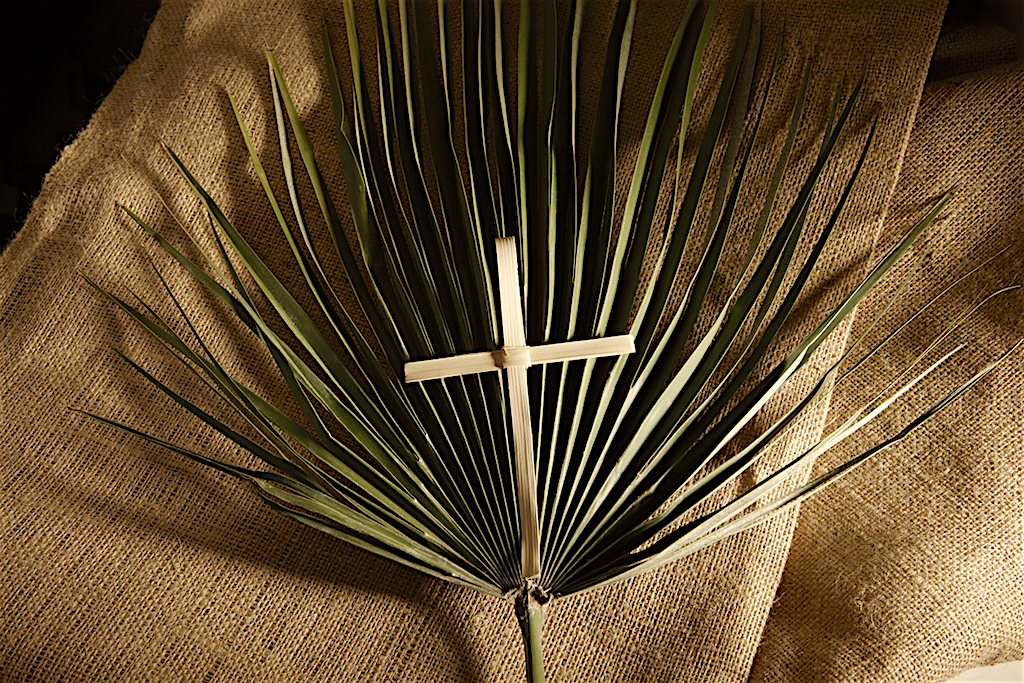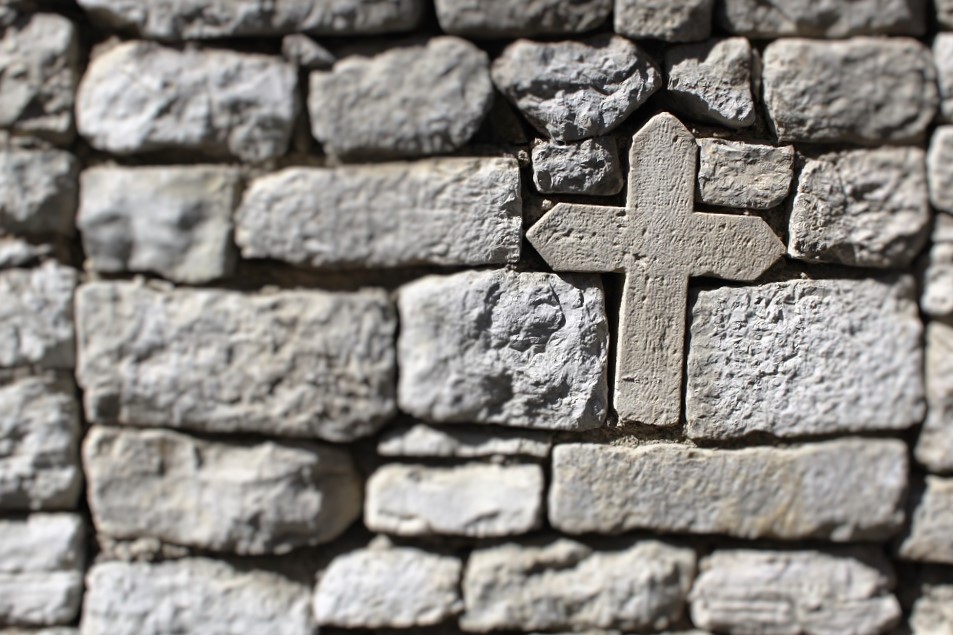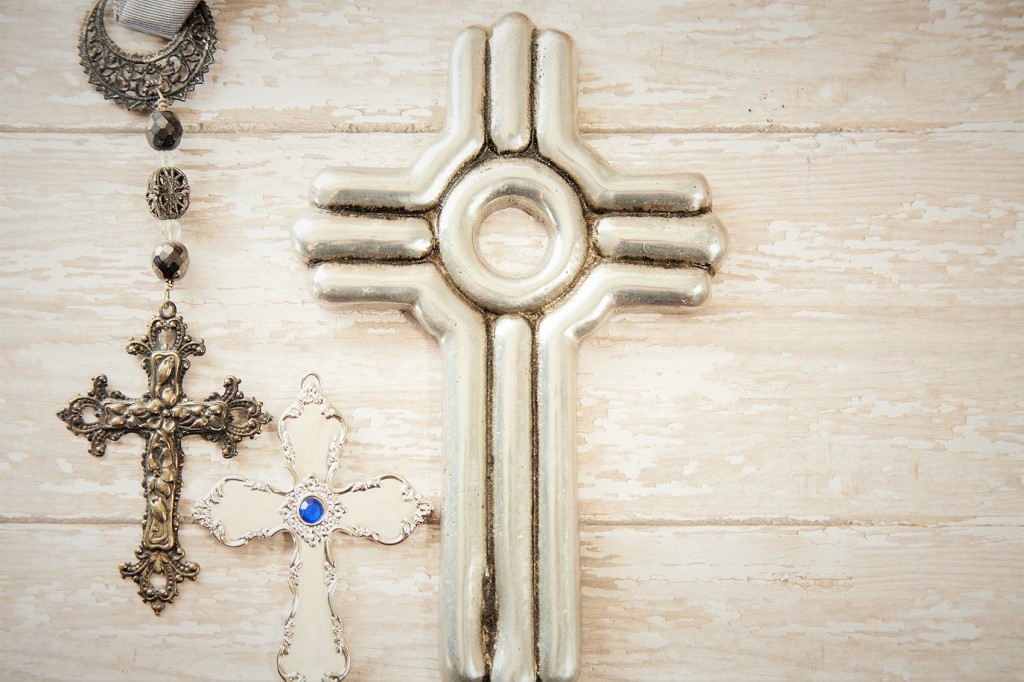“My God, my God, why have you abandoned me” (Ps 22:2)?
These words of Jesus spoken while hanging on the cross are among the most disturbing words in the Gospels. Jesus’ cry of abandonment from Psalm 22 is troublesome. Did Jesus give up trust in his most dear Father during the crucifixion? Did Jesus actually yield to despair on the cross? How can we understand this desperate cry?
Vatican Council Two’s document “Church in the Modern World” helps understand the cry. The document recalls our Christian belief that Jesus’ divinity did not eclipse the full experience of his humanity: “For by his Incarnation the Son of God united himself in some fashion with every man. He worked with human hands, He thought with a human mind, He acted by human choice, and loved with a human heart. Born of the Virgin Mary, He has truly been made one of us, like us in all things except sin”(#22).
As fully human Jesus on the cross tasted the depths of human suffering on every level – physical, psychological and spiritual.
Recall Jesus was undergoing the most painful and shameful death devised by the Roman authorities. Adding to the shame, He was crucified between two known criminals.
Recall also that Jesus was alone, having been rejected by everyone: religious authorities and fellow citizens, disciples and friends. It is poignant to recall that of his chosen twelve apostles one betrayed him, another denied him and all abandoned him. Only his mother and the two Marys were at the cross.
And perhaps most painful of all, Jesus was a failure. Jesus failed to accomplish the mission given him by his Father — preaching the Good News of the Kingdom of God. Even his apostles did not understand this message.
And on the cross Jesus felt abandoned — he even felt abandoned by his Father: “My God, my God, why have you abandoned me?”
In Holy Week we seek the special grace of being united to Jesus as we ourselves cope with the suffering in our troubled world and in our personal lives. Like Jesus we may feel abandoned by God. But like Jesus we are not alone. Just as the Father was with Jesus transforming Jesus through suffering, so Jesus is now with us transforming us!
And don’t we Christian move toward maturity in our faith as we embrace our crosses and unite them with with Jesus’. I have learned this truth slowly. As I have brought my sufferings to Jesus and dialogued with him on similar sufferings, I have been transformed, experiencing weakness to strength through faith.
Paul catches the heart of faith for Jesus and for us: “He humbled himself, becoming obedient to the point of death, even death on a cross. Because of this, God greatly exalted him and bestowed on him a name which is above every name, that at the name of Jesus every knee should bend”(Phil 2:8-10).
 Dick Hauser a Jesuit priest, born in Milwaukee in 1937. The oldest of six children, entering the Jesuits in 1955 and teaching in the theology department at Creighton since 1972. “My primary interest is in contemporary Christian spirituality. I’ve written three spirituality books: In His Spirit: A Guide to Contemporary Spirituality; Moving in the Spirit: Becoming a Contemplative in Action, both published by Paulist Press and Finding God in Troubled Times: The Holy Spirit and Suffering, published by Loyola Press.”
Dick Hauser a Jesuit priest, born in Milwaukee in 1937. The oldest of six children, entering the Jesuits in 1955 and teaching in the theology department at Creighton since 1972. “My primary interest is in contemporary Christian spirituality. I’ve written three spirituality books: In His Spirit: A Guide to Contemporary Spirituality; Moving in the Spirit: Becoming a Contemplative in Action, both published by Paulist Press and Finding God in Troubled Times: The Holy Spirit and Suffering, published by Loyola Press.”


 Tommy Schultz is a full time speaker who was most recently the Director of youth and young adult ministries for the Diocese of Baker, OR. As an experienced speaker on all things Catholic, he has addressed thousands of teens and young adults on topics such as the Sacraments, chastity, and boldly living the Catholic faith. He has given many talks and hosted retreats across the nation. Driven by his passion for Theology of the Body, Tommy studied at the Theology of the Body Institute and has spoken at numerous Theology of the Body conferences. From 2012-2013, he served as a missionary of purity, speaking to over 20 thousand youth about the message of purity across the state of Pennsylvania. He is also a founder of the Corpus Christi Theology of the Body campus organization at Franciscan University. To book Tommy for an event or for further information please visit
Tommy Schultz is a full time speaker who was most recently the Director of youth and young adult ministries for the Diocese of Baker, OR. As an experienced speaker on all things Catholic, he has addressed thousands of teens and young adults on topics such as the Sacraments, chastity, and boldly living the Catholic faith. He has given many talks and hosted retreats across the nation. Driven by his passion for Theology of the Body, Tommy studied at the Theology of the Body Institute and has spoken at numerous Theology of the Body conferences. From 2012-2013, he served as a missionary of purity, speaking to over 20 thousand youth about the message of purity across the state of Pennsylvania. He is also a founder of the Corpus Christi Theology of the Body campus organization at Franciscan University. To book Tommy for an event or for further information please visit 



